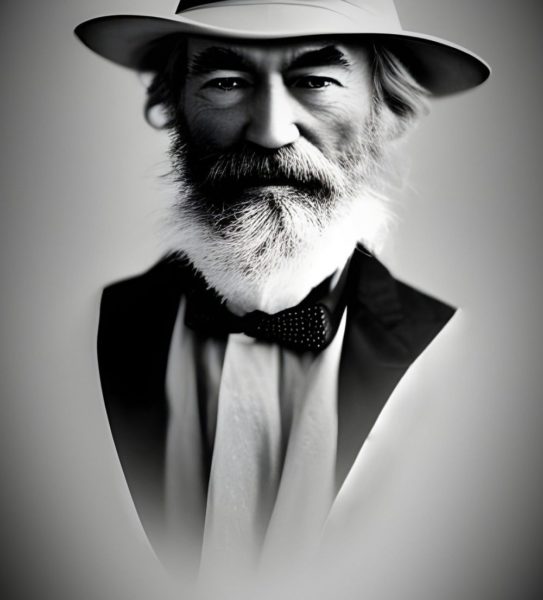George Orwells Animal Farm – A Timeless Masterpiece Unveiled

Introduction:
“George Orwell’s Animal Farm” is a thought-provoking allegorical novella that has captivated readers for generations. Set in a fictional farmyard, Orwell ingeniously portrays the Russian Revolution and the subsequent rise of Stalinism. This article aims to provide a comprehensive overview of the novel while offering valuable insights for those interested in this captivating subject.
I. Understanding the Essence of “George Orwell’s Animal Farm”:

1. Plot Summary:
– Animal Farm tells the tale of Manor Farm, where the animals overthrow their human oppressors, inspired by a pig named Old Major.
– They establish a utopian society where “All animals are equal,” guided by their Seven Commandments.
– However, as power corrupts, the pigs slowly transform into tyrannical oppressors, bending the rules to suit their desires.
– The story follows the increasingly oppressive regime of the pigs under Napoleon, paralleling real-life historical events.
2. Themes Explored:
– Corruption of Power: Orwell unveils the dangers of absolute power and its potential to corrupt even the noblest of intentions.
– Propaganda and Manipulation: The novel explores the use of propaganda to control the masses and shape their perception of reality.
– Equality and Revolution: Orwell raises questions about the feasibility and success of revolutions aimed at achieving true equality.
3. Literary Significance:
– Orwell’s clever utilization of anthropomorphic animals allows for a more digestible portrayal of political complexities and historical events.
– The use of satire and allegory helps Orwell convey his message in a compelling and memorable way.
– Animal Farm serves as a cautionary tale, warning against the dangers of totalitarianism and serving as a commentary on human nature.
II. The Historical Evolution of “George Orwell’s Animal Farm”:
1. Publication and Initial Reception:
– Animal Farm was first published in 1945, shortly after the conclusion of World War II.
– It garnered instant critical acclaim for its daring portrayal of Russian totalitarianism and its satirical take on Soviet Russia.
– The novel achieved commercial success, appealing to readers worldwide with its accessible narrative and thought-provoking content.
2. Political Interpretation:
– Orwell’s work has been analyzed extensively for its political implications and historical context.
– Initially seen as a critique of Stalinism, it later gained relevance as a broader commentary on authoritarian regimes and power struggles.
– Orwell’s astute observations on power dynamics continue to resonate with readers in contemporary times.
3. Legacy and Influence:
– Animal Farm remains a staple in literature curricula across the globe, praised for its insightful critique and universal themes.
– The phrase “All animals are equal but some animals are more equal than others” has become an iconic representation of hypocrisy and political manipulation.
– Orwell’s legacy extends beyond Animal Farm, with his other works like “1984” further cementing his position as a literary heavyweight of the 20th century.
Conclusion:
“George Orwell’s Animal Farm” transcends its humble origins as a farmyard allegory, standing as a timeless masterpiece that continues to inspire and provoke contemplation. Through its engrossing narrative, Orwell unveils the disturbing complexities of power, manipulation, and the potential pitfalls of revolution. This magnum opus reminds us of the eternal struggle for freedom and equality while urging us to remain vigilant against oppressive forces. Whether you are a lover of art or an avid collector, the lessons embedded within Animal Farm will undoubtedly leave an indelible mark on your intellectual journey. So, embark on this literary expedition and join the countless readers who have marveled at Orwell’s brilliance.
FAQ
What is the historical context of Animal Farm?
What is the main message of George Orwells Animal Farm?
What is the significance of Animal Farm in literature?
Flere Nyheder
Den ultimative guide til at vælge en erhvervsfotograf I Fredericia
Introduction: “George Orwell’s Animal Farm” is a thought-provoking allegorical novella that has captivated readers for generations. Set in a fictional farmyard, Orwell ingeniously portrays the Russian Revolution and the subsequent r...
04 juli 2025
Erhvervsfotografering i Aalborg: Skab en visuel identitet
Introduction: “George Orwell’s Animal Farm” is a thought-provoking allegorical novella that has captivated readers for generations. Set in a fictional farmyard, Orwell ingeniously portrays the Russian Revolution and the subsequent r...
03 marts 2025











